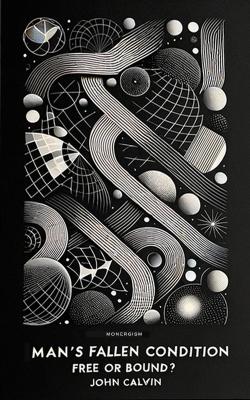"Man's Fallen Condition: Free or Bound?" by John Calvin is a theological exploration of the nature of human will, freedom, and the impact of sin. Calvin explores the complexities of human nature, particularly focusing on the extent of human freedom in the wake of the Fall.
One of the central themes of the book is the delineation between the philosophical and Christian perspectives on the will. Calvin critically examines various philosophical theories of the will, contrasting them with the Christian understanding as rooted in Scripture. He particularly engages with the teachings of Augustine on free will, offering a nuanced discussion on the nature of human freedom and its limitations.
Calvin argues that while man possesses a degree of choice and self-determination, this choice is not free in the truest sense. He posits that due to inherent sinfulness, human will is necessarily driven towards evil and cannot independently seek goodness. This condition, Calvin asserts, is not a matter of coercion but a manifestation of the bound will, captive under the authority of its corrupt desires.
The book further explores how sin's dominion over humanity has subjected all to a form of servitude, questioning the extent of freedom retained under this captivity. Calvin emphasizes the need for balance in understanding human nature, cautioning against both the apathy that may arise from a sense of helplessness and the inflated self-confidence that neglects the necessity of divine grace.
Calvin highlights the importance of God's illumination, without which man remains spiritually blind. He argues that while humans possess natural faculties and can exhibit skills in various arts, true understanding of heavenly truths remains incomprehensible to human reason without divine intervention.
One of the pivotal theological lessons from the book is the differentiation between earthly and heavenly things. Calvin asserts that while human understanding may grasp terrestrial matters to an extent, it falls profoundly short when it comes to celestial matters, the knowledge of God, and aligning one's life with His divine plan.
In conclusion, "Man's Fallen Condition: Free or Bound?" is a thought-provoking treatise that challenges readers to reflect on the true nature of human will, the profound impact of sin, and the indispensable role of divine grace in the pursuit of righteousness. Calvin's meticulous exposition and compelling arguments make it an essential read for those seeking a deeper understanding of Reformed theology and the complexities of human nature in relation to divine sovereignty.
Content from Institutes of the Christian Religion 1541 Edition.
Preface
How Far Does Man's Freedom Extend?
Philosophical Theories of the Will
The Christian Perspective on the Will
Augustine on Free Will
Understanding Human Nature
Man's Power and Limitations
Earthly and Heavenly Things
Human Skills in the Liberal Arts
Natural Endowments are Gifts of God
Heavenly Truth Incomprehensible to Human Reason
Without God's Illumination Man is Spiritually Blind
Natural Law Makes Sin Inexcusable
Natural Inclination Lacks Discernment
Paul's Teaching on the Will
More Scripture Proof of Man's Corruption
God's Grace Restrains Evil
God May Favor the Wicked with Particular Gifts
Man Sins of Necessity, His Will Being Held Captive
God's Remedy: New Hearts
Without Heart Renewal, the Will is Powerless
Scriptural Evidence
Perseverance a Divine Gift
Grace Does All, According to Augustine
Continuing Sin in the Believer
Sinners Captives to Satan
Scripture Affirms God's Willis Sovereign
Objections
